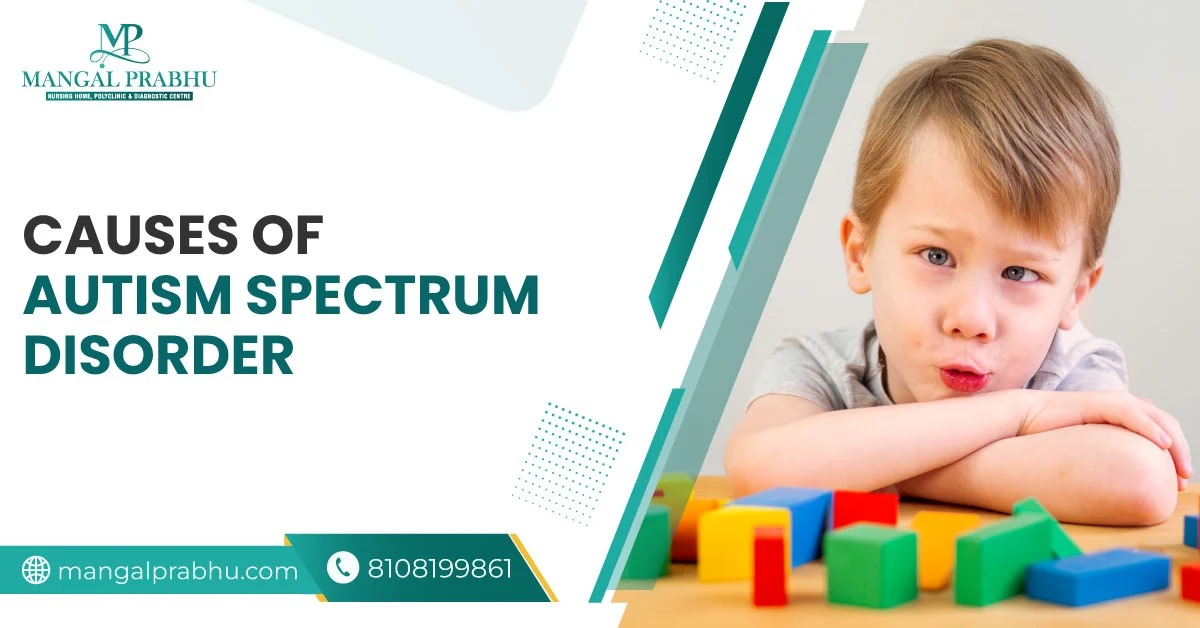
ASD, short for Autism spectrum disorder, is a neurological disorder that affects one’s ability to interact with people, socialize, or communicate. The term “spectrum” adds multiple neurodevelopment issues, which were previously considered separate from autism. Autism is diagnosed in early childhood, mostly within the first year.
Sadly, the condition can’t be cured. You can get autism disease disorder treatment in Navi Mumbai to improve your child’s quality of life and their ability to socialize. Given the complexity of the disease and the multiple range of symptoms, it’s hard to pinpoint the exact cause of ASD. The condition is mostly associated with genetic and environmental factors.
Let’s see what causes autism and who’s at an increased risk.
1) Genetic Factors
Autism is a hereditary disorder. If one of your children has autism, there’s a 20% chance your second child will develop it, too. Genetic mutations are also linked to an increased risk of developing ASD. Fragile X Syndrome, for example, is a genetic disorder that causes autism and other brain development issues in children.
2) Environmental Factors
The risk of autism is high in children born to older parents. Some prenatal and postnatal factors can also affect your risk of developing autism.
3) Prenatal Factors
Maternal infection or health issues, such as gestational diabetes and obesity, can increase the risk of ASD in offspring. Working in an environment where you are exposed to heavy metals and environmental toxins can also affect your child’s brain development.
Certain medications you take during pregnancy are also linked to brain disorders in children. Doctors recommend iron, folic, and other prenatal vitamins during pregnancy to reduce the risk of autism in children. If a mother develops folic deficiency, the risk of neurological disorders in the offspring increases.
Your healthcare provider will recommend a second-trimester ultrasound to detect different anomalies, including the risk of autism in your offspring.
4) Postnatal Factors
Autism can occur after birth. If your baby had low birth weight, was born prematurely, or was deprived of oxygen, they are at a greater risk of developing ASD than healthy and full-term kids. Certain types of infections in children in the early years after birth can also cause autism in children. Meningitis, for instance, can cause inflammation of the tissues in your brain and affect your neurological function.
5) Neurological Factors
An abnormal brain structure or size is another common cause of ASD in children. Abnormalities in the amygdala—the part that processes emotions and the cerebral cortex—the part of your brain responsible for language, sensory development, and personality, can increase your risk of getting autism.
Children with autism might have a high level of certain neurotransmitters, such as serotonin and dopamine. Macrocephaly or large head in children can also contribute to ASD. Although it can be a family trait in some kids, macrocephaly can indicate an underlying issue, such as an enlarged brain, brain bleeding, and other complications.
Conclusion
If you notice behavioral and social issues in your child, it’s important to see a pediatrician in Navi Mumbai. Given the right treatment and early care, an autistic child can live a normal life.
